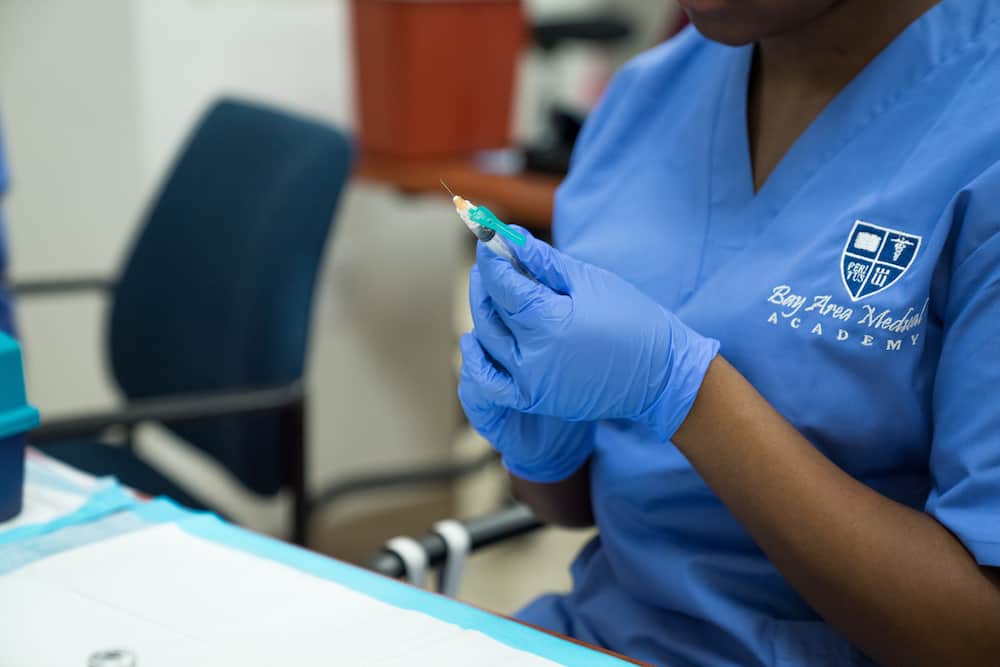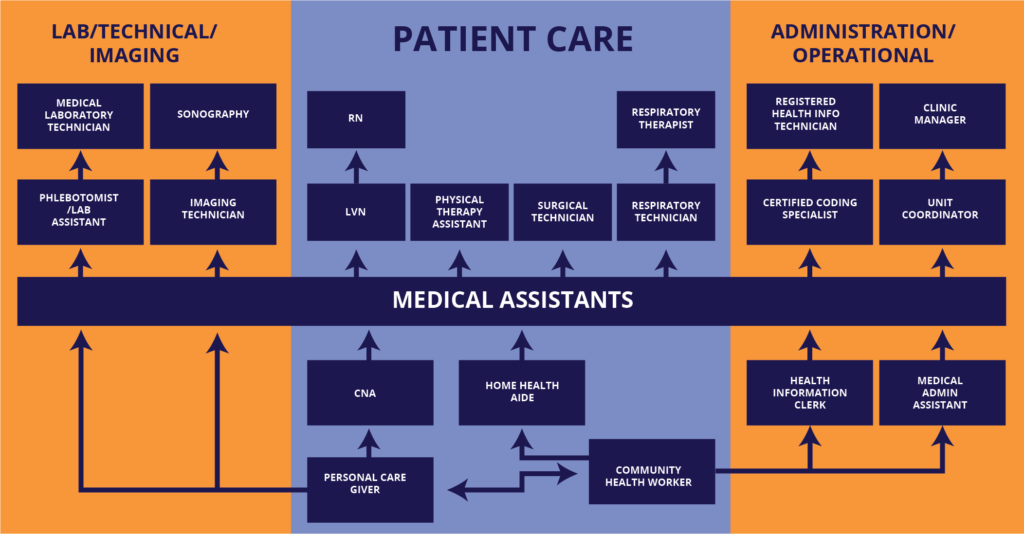Class Calendar | Call admissions on 415-943-2028
Get free phlebotomy training—exclusively for eligible Amazon Associates / Find MA training at BAMA
Class Calendar | Call admissions on 415-943-2028

What jobs can you get with a phlebotomy certificate? The most obvious one is phlebotomist, but there are dozens of ways that skill can be applied. Whether you work in a laboratory, hospital, or clinic, or if you specialize in a certain field, your phlebotomy certificate prepares you for many different career paths. If you want to expand your skills even further, you can look into becoming a medical assistant with a phlebotomy certificate.
To work in phlebotomy in California, you must obtain your phlebotomy technician credential from the state. There are three levels:
Most phlebotomists operate under the CPT I certification. The LPT is too limited for anything but basic work, while the CPT II is only needed for certain specialties and requires extensive phlebotomy experience.
Aside from a phlebotomist position, there is a range of jobs you can get with a phlebotomy certificate. After all, the skills required to complete blood draws and handle samples are transferable to a few other positions. Some include:
These aren’t the only jobs that you can get with a phlebotomy certificate. There are many ways to specialize in the field. Or, you can expand your skills and go on to be a medical assistant!
Medical assisting (MA) is a common career path for phlebotomists. Skills related to handling patients, discussing treatment plans, and assisting physicians are easily transferrable. The MA career path is also a little broader, laying the baseline for many other positions.

While a phlebotomy certificate prepares you for only the positions on the laboratory side, a program like BAMA’s 3-in-1 Medical Assisting With Phlebotomy prepares you to move into all three categories. It’s a far better jumping-off point for individuals who want to continue their training to become registered nurses, respiratory therapists, clinic managers, and more.
What jobs you can get with a phlebotomy certificate will also depend on your training. These programs will require clinical hours, so area healthcare providers will be familiar with the expertise of students from different schools. Choosing an established, reputable program will give you access to the more discerning employers who pay at the top of the scale.
BAMA Institute offers a California Department of Health-approved phlebotomy training program that area employers trust. To learn more, reach out to an admissions rep.
"*" indicates required fields
© 2024 BAMA Institute. All Rights Reserved. Website by WindsAndWater